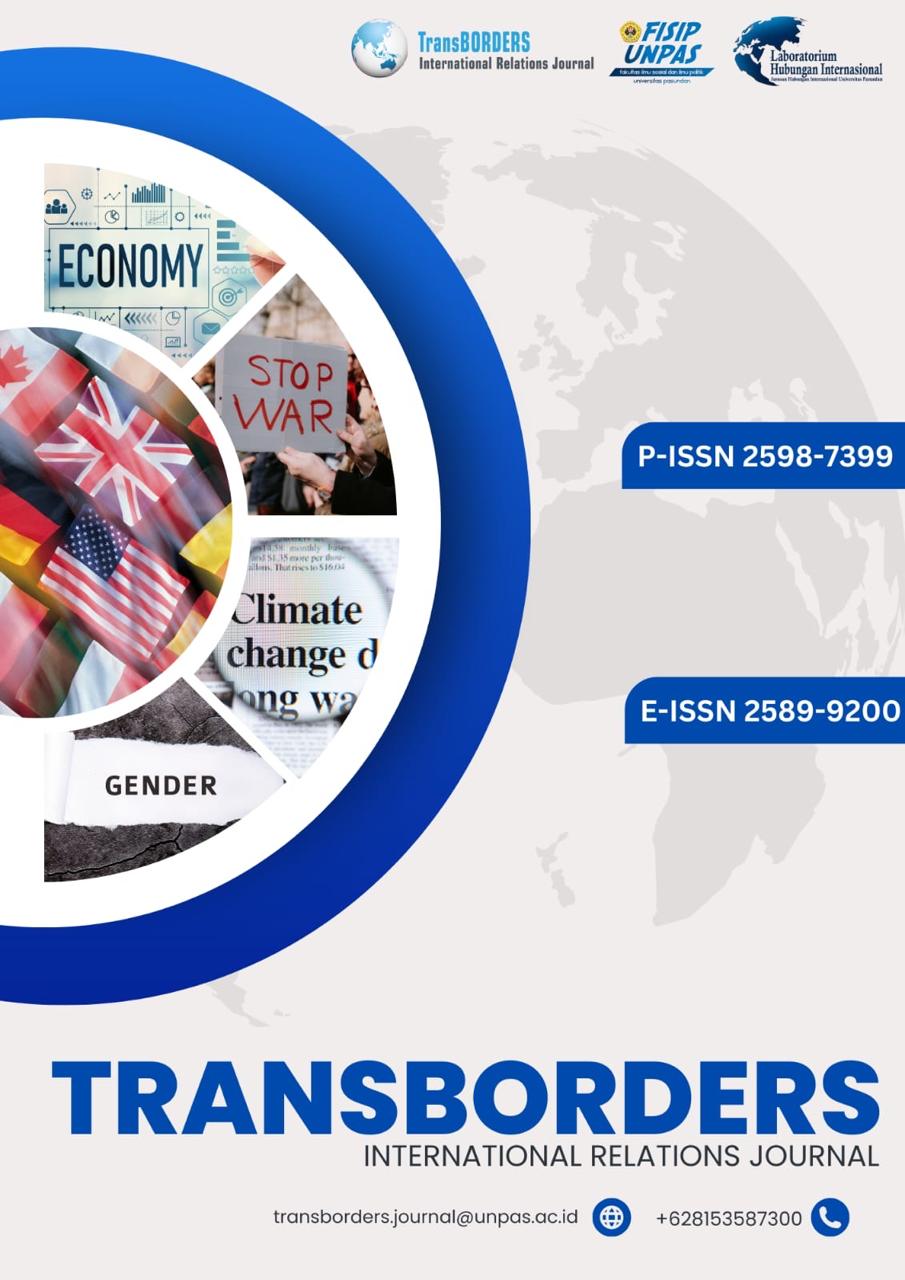Pengaruh Ni Una Menos Sebagai Transnational Advocacy Networks dalam Legalisasi Aborsi di Argentina
DOI:
https://doi.org/10.23969/transborders.v8i2.22867Keywords:
Ni Una Menos, Social Movement, Abortion, Gender-Based Violence, ArgentinaAbstract
Abortion has long been a controversial issue in Argentina. In the Criminal Law article 86 of 1921, the government only allows abortions to be performed in cases where the pregnancy is considered to endanger the life of the mother or when the pregnancy is a result of rape on a woman with mental disabilities. Restrictions on access to abortion result in high rates of unsafe and illegal abortions in Argentina, which increases the risk of maternal death and various other health and economic risks. The Ni Una Menos movement, which was born in 2015, became a turning point for the legalization of abortion in Argentina. Ni Una Menos successfully changed the orientation and tactics of the women's movement in Argentina, which previously focused on middle-class academia groups and political lobbying, into a movement of demonstrations and general strikes in the streets of Argentina. This movement went on to play a significant role in the enactment of rules regarding the legalization of abortion without conditions up to 14 weeks of pregnancy in 2020.
Downloads
Downloads
Published
Issue
Section
License

TransBorders: International Relations Journal is licensed under a Creative Commons Attribution-ShareAlike 4.0 International License
In order to be accepted and published by TransBorders: International Relations Journal, authors submitting the article manuscript should complete all the review stages. By submitting the manuscript, the author(s) agreed to the following terms:
- The copyright of received articles shall be assigned to TransBorders: International Relations Journal as the publisher of the journal. The intended copyright includes the right to publish articles in various forms (including reprints). TransBorders: International Relations Journal retains the publishing rights to the articles it publishes.
- Authors are permitted to disseminate a published article by sharing the link/DOI of the article at TransBorders: International Relations Journal. Authors are allowed to use their articles for any legal purposes deemed necessary without written permission from TransBorders: International Relations Journal, with an acknowledgement of initial publication to this journal.
- Users/public use of this website will be licensed to CC BY-SA (Attribution & ShareAlike).
















